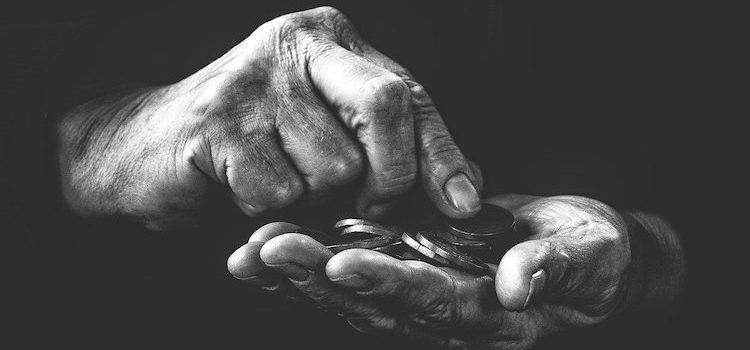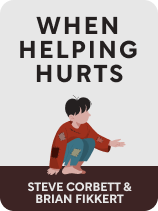

This article is an excerpt from the Shortform book guide to "When Helping Hurts" by Steve Corbett and Brian Fikkert. Shortform has the world's best summaries and analyses of books you should be reading.
Like this article? Sign up for a free trial here.
What does poverty around the world look like? How can we better understand poverty at a deeper level?
Poverty is an issue happening all around the world, but some people are approaching assistance in the wrong way. In When Helping Hurts, Steve Corbett and Brian Fikkert say that before trying to reduce poverty, you need to understand what exactly is causing poverty.
Find out what poverty around the world looks like so you can help solve it.
Understanding the Poverty Problem
When Helping Hurts encourages Christians to take an honest look at the way they approach poverty around the world to determine whether their efforts are causing more harm than good.
Steve Corbett and Brian Fikkert, two experts in finance and poverty alleviation working at Christian non-profit the Chalmers Center, explain how poverty relief efforts can reinforce the recipients’ sense of powerlessness, especially when administered in a spirit of paternalism. When this happens, it undermines the program’s effectiveness because the sense of powerlessness is an even more fundamental component of poverty than lack of physical resources.
After exploring this problem, Corbett and Fikkert discuss ways to improve our poverty alleviation strategies so that we can genuinely help impoverished communities. In this guide, we’ll present their concerns and their proposed solutions, with additional perspectives from other authorities on poverty such as Amartya Sen.
Further, because the book’s original target audience is North American Christians and especially church leaders, we’ll also explore the implications of their advice for people outside of Christianity to some extent.
We’ll detail how Corbett and Fikkert define poverty and the root causes of poverty that they identify, because misunderstanding the nature of poverty is one of the main reasons for inappropriate poverty alleviation efforts: Sometimes churches’ attempts to help the poor do more harm than good because they’re trying to solve the wrong problem. Corbett and Fikkert point out that you need a clear understanding of the problem of poverty before you can implement an effective solution.
(Shortform note: The principle that it’s counterproductive to try solving a problem before you correctly define its root cause applies to most problems, not just poverty. For example, in Principles: Life and Work, Ray Dalio discusses the importance of identifying root causes when solving business problems.)
Defining Poverty
Corbett and Fikkert observe it’s not easy to define “poverty” around the world because poverty is a complex issue, as evidenced by the diversity of ways that different people define and describe it. They observe that middle- to upper-class white North American Christians often describe poverty as a lack of material things like water, food, money, medicine, and housing.
(Shortform note: This tendency to define poverty in terms of material goods shouldn’t be surprising, considering that it aligns with most official definitions. For example, Webster’s dictionary defines poverty as a state of “lacking the usual or socially acceptable amount of money,” while the US Census bureau defines poverty as having less than a certain level of household income.)
But when poor people are asked to describe what poverty is, they tend to focus on psychological problems more than material shortages. In a survey of 60,000 poor people from 60 different low-income countries, most respondents named feelings such as shame, powerlessness, fear, hopelessness, depression, voicelessness, and isolation as the essence of poverty. Corbett and Fikkert affirm that this is the correct definition of poverty—after all, nobody knows what it means to be poor better than the people who are poor.
(Shortform note: In Secrets of the Millionaire Mind, T. Harv Eker takes this concept even further, arguing that psychological issues are the cause of poverty. He explains that when people think negatively, they reinforce the belief that they’re powerless when it comes to money. This results in the failure to take actions to improve their circumstances. And because the poor often suffer from low self-esteem, they feel unworthy of more money and unconsciously sabotage opportunities to improve their finances.)
The Root of Poverty
Despite poverty’s complexity, Corbett and Fikkert argue that we can trace all of its components back to one source: a breakdown in a person’s relationships with God, self, others, and the rest of creation.
The Four Broken Relationships
According to Corbett and Fikkert, when Adam and Eve disobeyed God, it damaged all humans’ relationships with Him, themselves, the people around them, and the rest of creation. As a result of these broken relationships, humans have developed a series of harmful worldviews, which make them poor by causing them to make poor decisions:
Negative view of God: Instead of serving and praising God, people may lack faith in Him, not believe in Him, or even believe in other gods. This may lead them to squander resources trying to curry the favor of false gods through offerings or expensive rituals.
And even if it doesn’t, it facilitates other negative worldviews: Without a correct view of God, people can’t readily form correct views of themselves, others, or their role in creation. They can’t understand themselves or each other without knowing God because God made humans in his own image. And they can’t understand their place in managing creation without knowing what role God gave them. As such, Corbett and Fikkert emphasize that teaching the Christian worldview (that is, a correct view of God) is a crucial element of liberating people from poverty.
Negative view of self: Instead of recognizing their inherent value and superiority to the rest of creation (for example, animals), they lack self-confidence and self-worth. This contributes to their sense of powerlessness and holds them back from pursuing the opportunities that are available to them.
Negative view of others: Instead of knowing, loving, and encouraging others to use their unique gifts, people become self-centered, treating others with hostility or indifference, and exploiting or manipulating them when given the opportunity. This contributes to their poverty by driving others away, making them feel more isolated, and exacerbating their powerlessness because they lack empowering social or professional connections.
Negative view of creation: Instead of managing, protecting, and engaging with the rest of creation, people disconnect from the world around them and in some cases believe that life is entirely outside of human control.

———End of Preview———
Like what you just read? Read the rest of the world's best book summary and analysis of Steve Corbett and Brian Fikkert's "When Helping Hurts" at Shortform.
Here's what you'll find in our full When Helping Hurts summary:
- How many Christian church missions actually do more harm than good
- A look into the true nature and causes of poverty
- Suggestions for how to help the poor more effectively






